Many National Assembly deputies believe that the current regulation that absolutely prohibits people with alcohol concentration from driving is not appropriate and that a limit should be designed to set a penalty.
Discussing the draft Law on Road Traffic Safety and Order on the afternoon of November 24, delegate Le Huu Tri (Deputy Head of Khanh Hoa Delegation) opened the debate on "the regulation of absolutely prohibiting traffic participants with alcohol concentration in their blood and breath should be maintained".
The regulation prohibiting driving a vehicle with alcohol concentration in blood or breath was included in the Law on Prevention of Alcohol Harm from mid-2019. Article 8 of the draft Law on Road Traffic Safety and Order continues to inherit this regulation.
According to Mr. Tri, this policy is designed to ensure the health and lives of traffic participants and limit accidents. In fact, the recent drastic handling of violations related to alcohol concentration has had a positive effect, changing the awareness of traffic participants in obeying the law.
"However, in reality, this regulation is somewhat inappropriate from the perspective of Vietnamese culture and living habits as well as from a biological perspective. When tested for alcohol concentration, traffic controllers and traffic participants must argue about whether or not they have drunk alcohol," said Mr. Tri, suggesting a careful and thorough assessment of this regulation to ensure practical requirements, scientific basis, and feasibility.
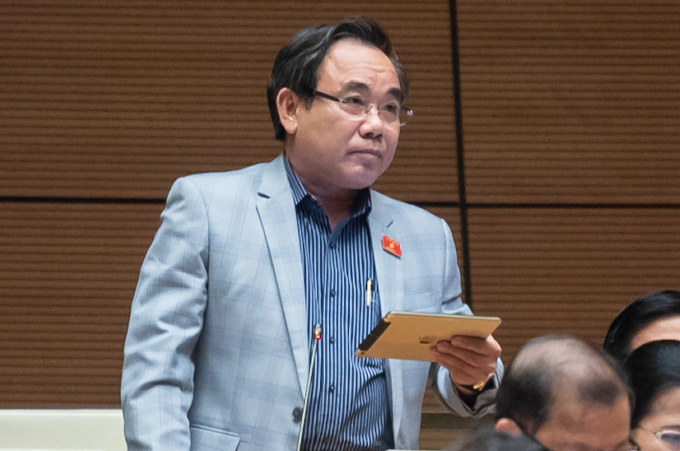
Delegate Le Huu Tri speaks at the National Assembly on the afternoon of November 24. Photo: National Assembly Media
After Mr. Tri's speech, many delegates joined the debate. Delegate Trinh Minh Binh (in charge of Vinh Long delegation) agreed that "there should not be rigid regulations, absolutely prohibiting drivers with alcohol concentration".
Mr. Binh proposed designing regulations like the 2008 Road Traffic Law, which allows drivers to have a certain alcohol concentration, and only those exceeding the permitted threshold will be punished.
"A person drinks a glass of grape juice soaked in sugar to make it easier to digest, but when driving, if the alcohol concentration is measured, he will still be fined. This is unreasonable and unconvincing, and can easily cause controversy when people are tested for alcohol concentration," Mr. Binh gave an example.
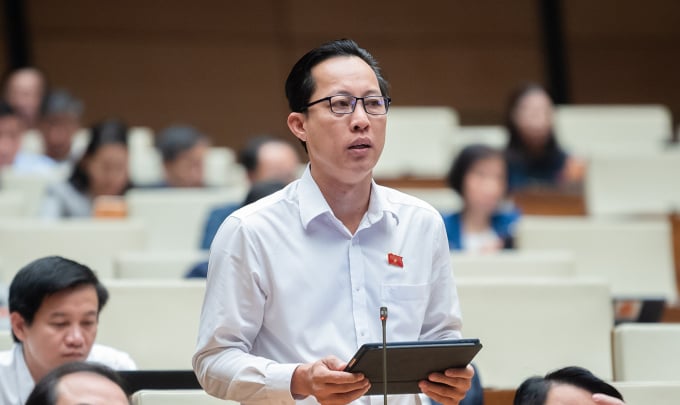
Delegate Trinh Minh Binh speaks at the National Assembly on the afternoon of November 24. Photo: National Assembly Media
Deputy Head of Lai Chau Delegation Hoang Quoc Khanh also agreed with the two opinions mentioned above, suggesting that the drafting agency should not completely ban it but should inherit the regulations in the 2008 Road Traffic Law. "Allowing alcohol concentration in blood and breath at a safe threshold according to the standards of competent authorities is consistent with reality," said Mr. Khanh.
According to him, alcohol concentration should only be absolutely banned for professional drivers, business drivers, service drivers, and those with contracts for state agencies.
Participating in the debate, Mr. Be Trung Anh (Standing Member of the Ethnic Council) analyzed that the authorities are trying to control the behavioral capacity of traffic participants, but alcohol is only one of the factors that cause loss of behavioral control.
"Drinking too much alcohol affects behavioral capacity, but drinking a little or tasting a little is still fine and probably has no effect. It is necessary to clearly distinguish between behavioral capacity and the agent that causes it - that is, drinking alcohol," Mr. Trung Anh argued, adding that if the authorities want to control the behavioral capacity of drivers, there is not only alcohol but also cocaine and many other stimulants.
He compared, "There are people walking on the road, only thinking about their wives, their hearts pounding, their legs shaking, they can't drive anymore", causing the whole hall to burst into laughter.
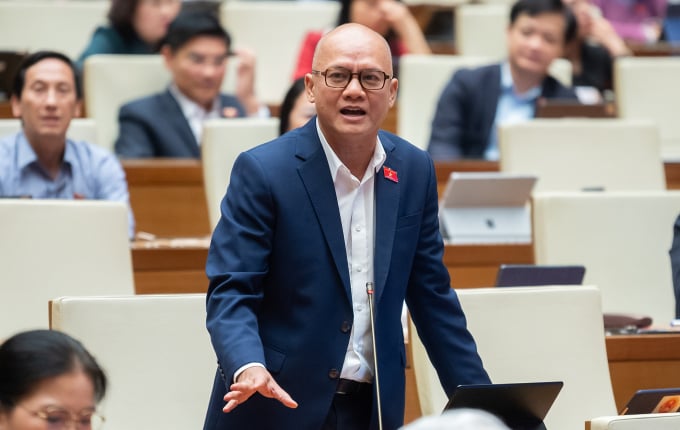
Delegate Be Trung Anh debates at the National Assembly on the afternoon of November 24. Photo: National Assembly Media
Expressing an opposing view, Ms. Dang Bich Ngoc (Deputy Head of Hoa Binh Delegation) said that the handling of drivers violating alcohol concentration in the past has contributed significantly to ensuring traffic safety and order, limiting tragic accidents, and changing people's awareness. The habit of "don't drive after drinking" has been formed. Therefore, she agrees with the provisions in the draft law.
Previously, the examining body - the National Assembly's Committee on National Defense and Security said that some opinions in the Committee suggested considering the content of banning driving with alcohol concentration in blood or breath because it was "too strict and not really suitable for the culture, customs and practices of a part of the Vietnamese people, affecting the socio-economic development of many localities".
These members proposed to consult international experience and regulate alcohol concentration at appropriate levels for each type of vehicle; ensuring consistency with the provisions of the Penal Code.
Source link



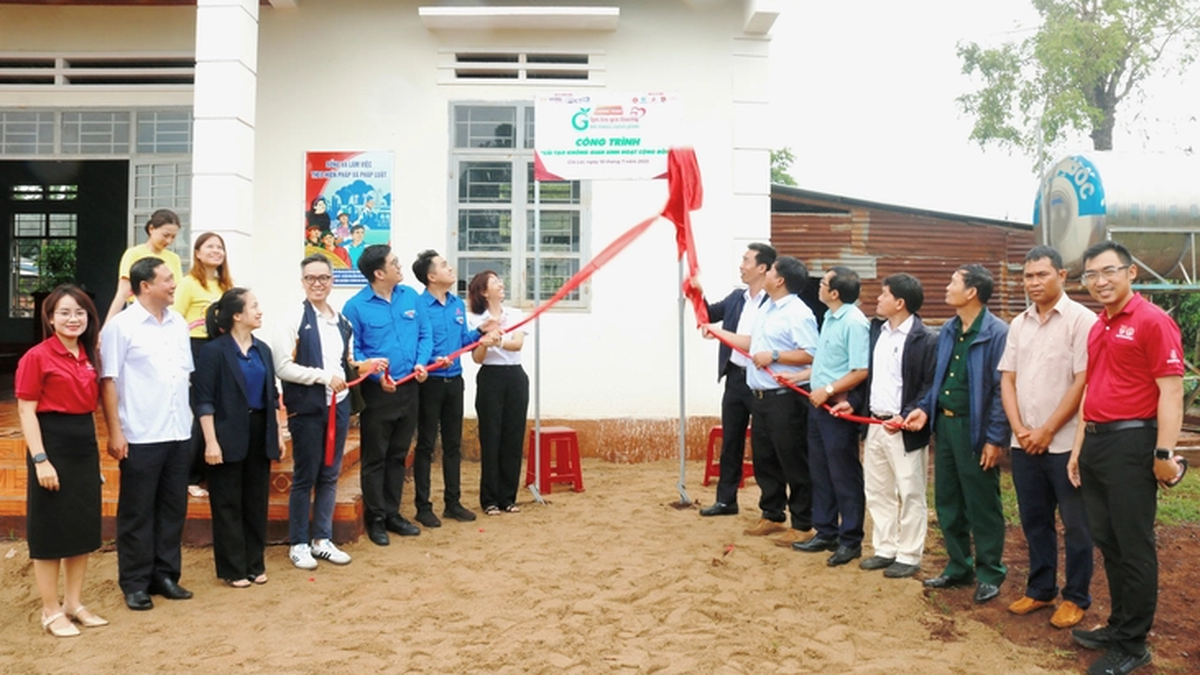



























































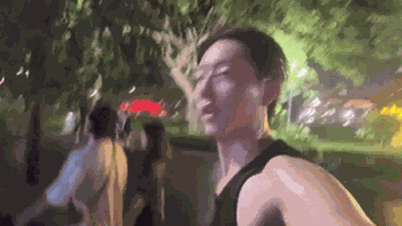



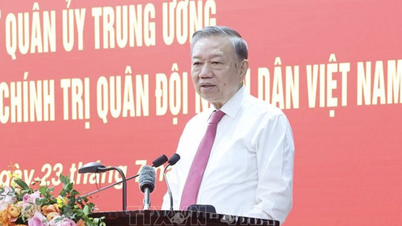








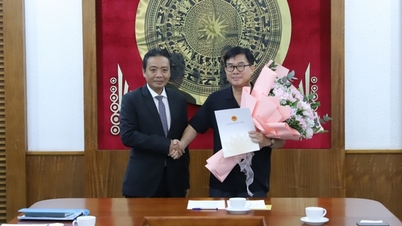


























Comment (0)